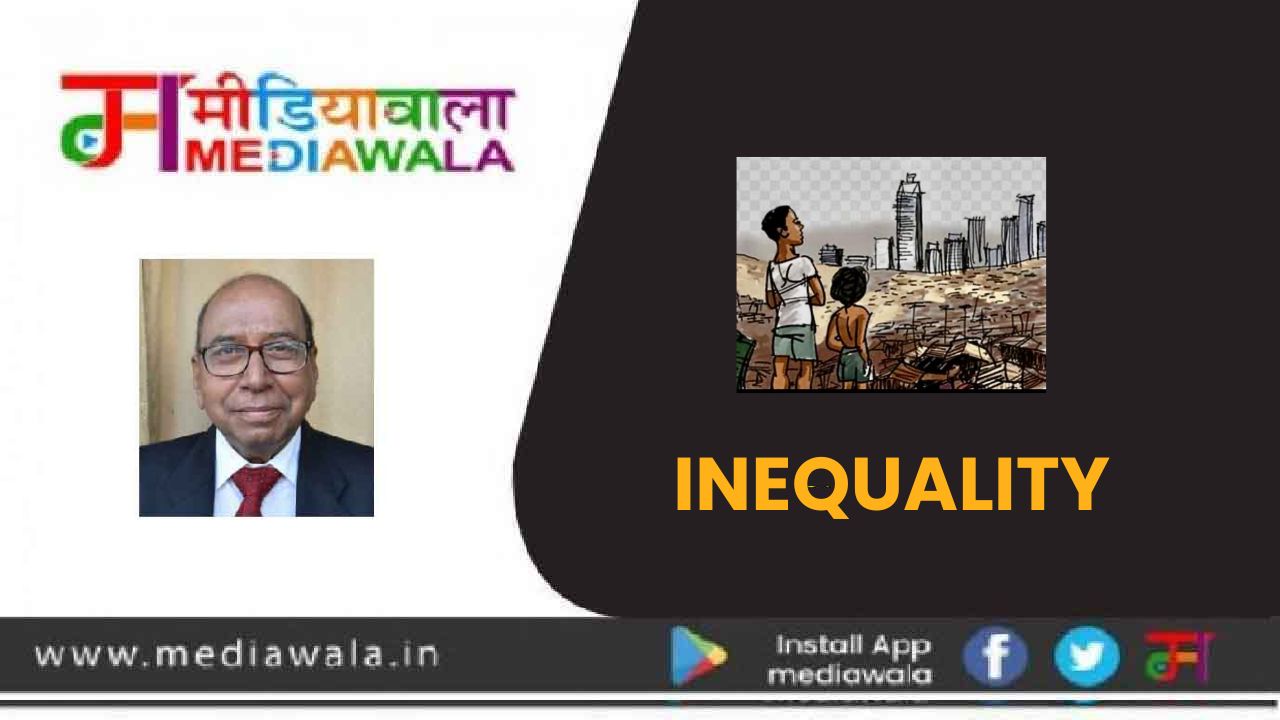
INEQUALITY
Continuously rising Inequality in India has been brought back to the fore. Rahul had been attacking Adani and Ambani ad nauseam. As a matter of fact, the whole world has reached unsustainable levels of economic inequality. Economic growth is not enough if it does not include the three dimensions of sustainable development: economic, social and environmental. Inequality is all pervasive – in rich or poor, small or big countries, it is omnipresent and ever increasing.
To measure inequality, organizations like the UN and the World Bank use the Gini Coefficient. It is a number between 0 and 1, where 0 would be a totally fair distribution of income and wealth among all the inhabitants of the country and 1 would mean that all wealth is controlled by just one person. For the UN, a Gini Coefficient higher than 0.40 is alarming for extreme social harmony. The top 10 unequal countries have Gini Coefficient from .54 to points .63 -African countries South Africa, Namibia, Zambia, Botswana, Angola, Eswatini and South American countries, Brazil, Surinam, Belize and Columbia are in the top 10 in inequality.
Most surprising is the case of professed Communist China, where once its leader Mao Zedong envisaged complete equality. Today China despite its fast economic growth, is also one of the most unequal. 600 million people still live in poverty, 85% of them with less than one dollar a day. Its communist political system has absorbed and adapted some of the pillars of the capitalist economy and has produced the largest number of billionaires in the world. It has given up any political effort to eliminate the polarization of wealth.
Inequality in India has skyrocketed since the early 2000s, with the income and wealth share of the top one per cent of the population rising from 22.6 per cent to 40.1 per cent in 2022-23. It is no surprise that the number of Indian billionaires shot up from 1 in 1991 to 271 in 2024. Many economists and politicians have suggested a restructuring of the tax code to account for both income and wealth, and broad-based public investments in health, education, and nutrition. World Inequality Lab has suggested that in India to fight inequality, a “super tax” of two per cent on the net wealth of the wealthiest families would yield national income in revenues and create valuable fiscal space to facilitate public investments on poor.
However, former RBI governor Raghuram Rajan ( opponent of Modi’s crony capitalism ) has challenged the effectiveness of traditional redistributive tax measures, such as wealth and inheritance taxes, arguing that they can be easily circumvented by the wealthy. All politicians know that our capitalists can easily shift their capital to offshore destinations. This will gravely hurt our industry, jobs, and ultimately the poor.
Like all other countries in the world, India cannot wish away capitalists and market economy. Public sector miserably failed in the first four decades after independence. I feel there has to be wealth creation and government can only resort to measured amount of welfarism without hurting the budget for infrastructure.







